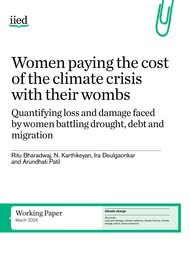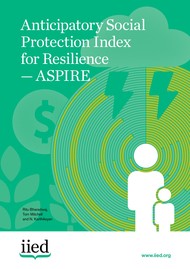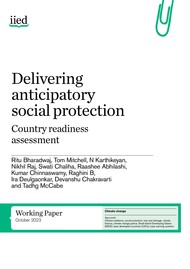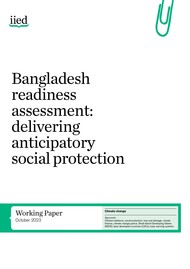Ethiopia readiness assessment: delivering anticipatory social protection

This study uses the ASPIRE tool to evaluate the readiness and effectiveness of social protection systems in Ethiopia, identifying gaps and opportunities to improve anticipatory measures and climate resilience.
The analysis shows that the Ethiopian National Social Protection Policy targets a broad spectrum of at-risk groups, such as women, children, the elderly and marginalised communities. It leverages various programmes, including the Health Extension Program, to offer diversified support such as livelihood and health assistance. Ethiopia's social protection policy is robust and multi-faceted, aiming to support vulnerable populations, particularly in times of crisis. The Productive Safety Net Program serves as the cornerstone, offering a variety of aid, including food and cash transfers, as well as public works geared toward climate resilience. Alongside this, a risk financing mechanism and an EWS are integrated into the policy framework for crisis management. While the policy does well in stakeholder engagement and covers the majority of its intended beneficiaries, it falls short in addressing the needs of migrants and lacks data on the efficacy of emergency food aid.
Administrative frameworks are well-established, featuring a national social registry and EWS for effective targeting and response. While there is ongoing work to harmonise different programmes and stakeholders, the policy could benefit from more advanced risk modelling technologies.
Cite this publication
Available at https://www.iied.org/21916iied






